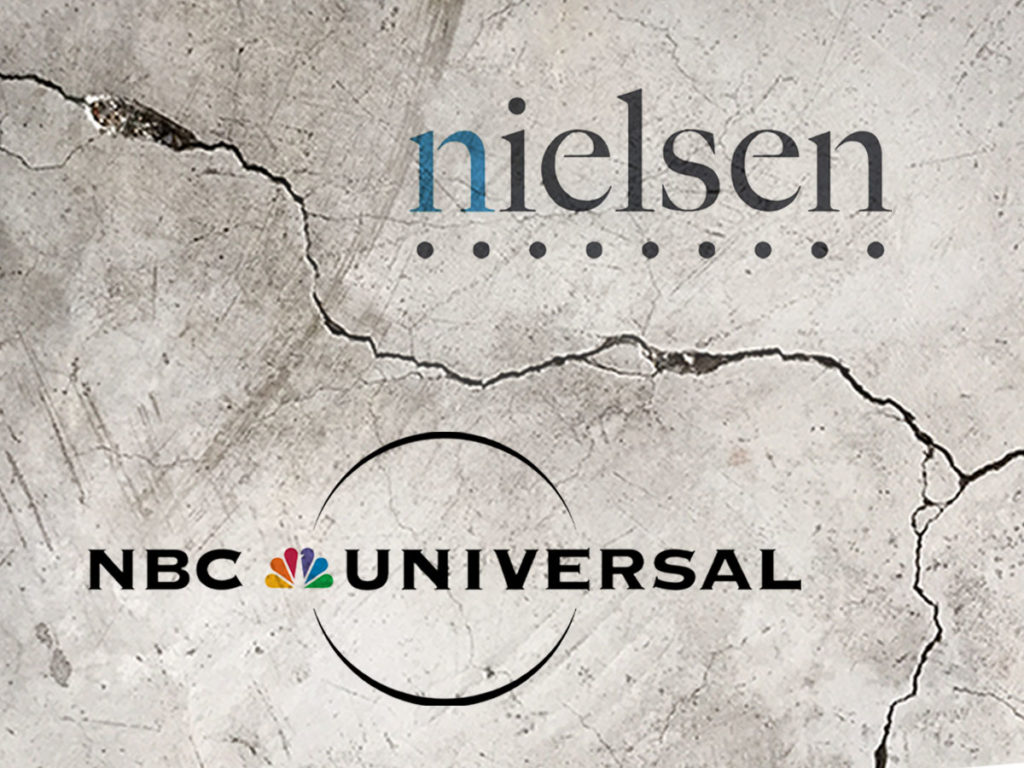Seeing Connected TV Through a Search Marketer Lens
by Jaci Schreckengost
3 Min Read
CES 2024: Stagwell (STGW) and MNTN Announce Partnership in Unified Performance SolutionsLearn More
NBCU looks to “build a new measurement ecosystem that reflects the future”

4 Min Read
Nielsen – once the industry standard for TV ratings measurement – has spent the last year under fire for inaccurate reporting that cost advertisers hundreds of millions of dollars, calls for third-party audits from industry groups, struggles to keep up with changing consumer demands, and a self-requested hiatus from industry backing.
Now Nielsen’s troubles may have cracked open the door for media companies to pursue new methods of TV measurement – and NBCUniversal just kicked it wide open.
While Nielsen works to get their affairs in order, media companies are using the opportunity to shop around – and they’re liking what they’re seeing. Earlier this month, NBCUniversal issued a request for proposals to more than fifty different companies, asking them to help “build a new measurement ecosystem for us that reflects the future.” The charged language and public move have industry observers noting that this could radically shake up the world of TV – and lead the way for other networks to follow.
The news is just another source of tension for Nielsen, who just had its accreditation suspended by the Media Relations Council (MRC). MRC’s investigations have found that Nielsen undercounted viewers in the important 18-49 demographic by as much as 2-6%, which has shaken up trust and angered both advertisers and networks – and paved the way for NBCUniversal’s shake-up.
By pursuing measurement methods that more accurately reflect changing viewing habits, NBCUniversal has made it clear they see the future of TV as Connected TV – which is more bad news for Nielsen, whose ratings framework is built around the linear TV of yesteryear. Studies show that 90% of young Americans aged 25-34 prefer to access TV content through the internet, and eMarketer predicts that by 2024 more than one-third of U.S. households will have cut the cord.
With more viewers than ever watching TV online, advertisers are interested in not just accurate viewing data – but leveraging digital tracking to determine additional metrics like shopping habits. It’s just one more way that advertisers are rethinking how to advertise on TV and understanding Connected TV’s strengths. According to Kelly Abcarian, executive vice president of measurement and impact at NBCUniversal’s advertising and partnership unit, “The media and technology landscape has completely transformed over the last few years — yet measurement remains outdated. Why? Because the advertising industry has not adapted and it’s holding us back.”
If NBCUniversal and other networks break up with Nielsen for good, observers point out that a centralized standard may never exist again. According to eMarketer principal analyst Paul Verna, “As TV viewing becomes more fragmented, the ad inventory that supports it is also expanding to multiple stakeholders with different business agendas, including TV networks and their affiliated streaming services, cable/satellite operators and their digital counterparts, smart TV manufacturers, and aggregators such as Roku and Amazon. Coming up with a currency everyone can agree on in such a fragmented market is a tall order, but NBCUniversal’s efforts are a step in the right direction.”
And yet NBCUniversal’s move is not without concern. The organization has yet to signal whether its new measurement system will be managed by an impartial third party – or provided by NBCUniversal itself. This “walled garden” approach to metrics has already plagued online media outlets like Facebook and could potentially cause more instances of inaccurate or misrepresented data. When asked to comment on the situation by Variety, Procter & Gamble said, “P&G makes decisions involving billions of dollars on where to invest our media money. These are big bets so we need objective, validated measurement to be sure that we’re getting the viewability, audience, reach and frequency we pay for.”
As streaming subscriptions continue to skyrocket and measurement focus is shifted to Connected TV, media companies will be looking to access their data in real-time from a third party that operates outside of a walled garden.
NBCUniversal’s move is just the first wave of media companies rethinking data monitoring as streaming service subscriptions continue to skyrocket. As advertisers continue to follow viewers to Connected TV and increase ad spend, there is a growing need for performance marketing tools like MNTN’s Performance TV platform that operates outside of a walled garden and offers reliable, real-time data.
Performance TV helps brands measure success and, thanks to leveraging CTV’s technical advantages, makes the most of the opportunity Connected TV advertising has to offer:
The dust has yet to settle from NBCUniversal’s actions, but it’s already clear that the traditional ways of monitoring and reporting are changing. By rethinking their measurement strategies and investing in reliable tools that maximize the potential of Connected TV, advertisers will be better suited to meet modern consumer expectations.